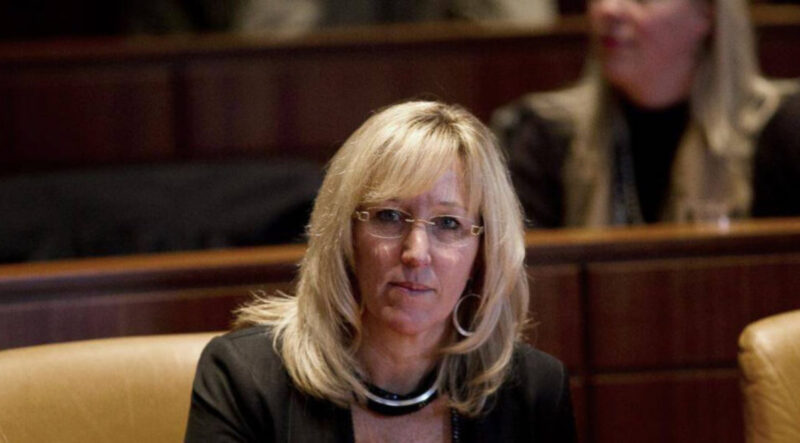“Their aim is to spread fear not facts about salmon farming”
New study says findings about organisms and viruses that have no significant impact on fish health is causing unnecessary controversies over salmon farming in British Columbia.
By Fabian Dawson
SeaWestNews
Dubious claims based on questionable science, peddled widely by anti-aquaculture activists, are causing unnecessary controversies over salmon farming in British Columbia leading to a waste of public resources, states a new study by prominent fish health specialists in the Pacific Northwest.
In a new peer-reviewed paper published in the Journal of Aquatic Health , the study calls on regulatory agencies to avoid making policy changes until full investigations are conducted on the so-called “new” findings related to organisms that are not significant to fish health.
“In the Pacific Northwest, including Canada and Alaska, molecular detections of “new” potentially infectious agents in fish have received extensive media attention and misinterpretation that call for resource agencies to change current fish health surveillance practices or policies to include these agents.”
These discoveries that are not accompanied by critical information demonstrating the ability of the agents to cause disease are only the first steps in the process of data gathering, said the study.
“Additional corroborating test data and overall assessment by fish health professionals are important to provide the necessary facts for the lay public, the media and finally the resource managers who must make and defend their decisions based on science rather than uninformed opinion,” said the study authors.
The study by Theodore Meyers, Principal Fish Pathologist at the Alaska Department of Fish and Game and Nora Hickey, Program Veterinarian at the Northwest Indian Fisheries Commission is supported by 18 fish health professionals from the Department of Fisheries and Oceans (DFO), the US National Marine Fisheries Service and Fish and Wildlife Agencies of California, Oregon, Idaho, and Montana, among others.
“This document provides examples of molecularly detected agents causing public concern that were accompanied by little or no data to provide context and assessment of biological significance,” said the authors.
One such example examined was a study Dr. Kristi Miller-Saunders, a federal fisheries scientist known for her anti-salmon farming stance, who concluded that the Piscine Reovirus (PRV) is responsible for heart issues and jaundice in wild salmon.
The other two scientists involved in the study, Dr. Sonja Saksida of the BC Center for Aquatic Health Sciences and Dr. Gary Marty, the senior provincial fish pathologist at the Animal Health Centre in Abbotsford, disagreed with Dr. Miller-Saunders conclusions.
The study, initiated by Creative Salmon to investigate fish health at its salmon farms in Tofino, was then leaked and publicised, despite a volume of existing peer reviewed scientific evidence that finds PRV does not cause disease in fish in the Pacific.
It “caused needless public concerns…the overall scientific consensus was that the northeastern Pacific variant of PRV-1a is not a significant disease-causing agent in Pacific salmonids contrary to the misinformation claiming the virus is a threat to wild fish populations and resource sustainability,” said the new study.
Over the past few years, Dr. Miller-Saunders aided by activists, have been telling anyone who would listen, including the Globe and Mail , that DFO is colluding with the aquaculture industry to suppress research. DFO and Creative Salmon have denied her claims.
When Dr. Miller-Saunders findings were made public for the benefit of the anti-salmon farming lobby groups in BC, it was immediately savaged by a range of fisheries and aquaculture experts who said the study was more about activism against fish farms than real science.
Dr. Ian Gardner, Canada Excellence Research Chair in Aquatic Epidemiology said the “speculative” study made broad sweeping statements not supported by evidence.
Dr. Hugh Mitchell, an internationally recognised fish health expert, said that that Dr. Miller-Saunders and her group “grossly extrapolated the findings” to conclude that their study shows very real risks associated with PRV transmission from farmed salmon to wild Pacific salmon.
“One ceases to be a scientist and becomes an activist when one’s research is continually geared to trying to prove that farmed fish are a threat to wild fish while ignoring research that doesn’t substantiate that bias,” he said.
Last year a team from the University of BC, also debunked Dr. Miller-Saunders’ uncorroborated PRV assertions.
PRV has long been present in wild salmon in Pacific Northwest waters and has been detected in healthy fish, showing that its presence does not mean disease occurs, the UBC study said.
In 2019, two similar studies found that the piscine reovirus (PRV) is not a salmon killer in British Columbia,
One study, published in Scientific Reports, was conducted by scientists from the Pacific Biological Station and the provincial government’s Animal Health Centre.
The other, published in Frontiers in Physiology, was conducted by scientists at the University of BC and the Pacific Biological Station. The studies found that the strain of PRV found in B.C. fish to be benign.
DFO said PRV has long been present in wild salmon in Pacific Northwest waters and all experimental exposures of the BC strain of PRV to Pacific and Atlantic salmon in BC have failed to induce disease or mortality. This suggests PRV in BC has a low ability to cause disease.
“The activists and their activist-scientists are trying to create controversy where there is none to influence the Federal decision on expiring salmon farming licences in BC ,” said an industry official.
“Their aim is to spread fear not facts about salmon farming,” he said.
This is not the first time Dr Miller-Saunders assertions have come under scrutiny.
In 2018 she triggered a $100,000 government investigation after she questioned the integrity of her colleagues at the provincial Animal Health Centre in Abbotsford, BC.
The government inquiry debunked her claims and found the Animal Health Centre operates with strong professional, scientific and ethical integrity.
The review process found no evidence of “dubious data or conflict of interest,” as claimed by Dr. Miller-Saunders
(File Image of Dr. Kristi Miller-Saunders testifying at the Cohen Commission)

